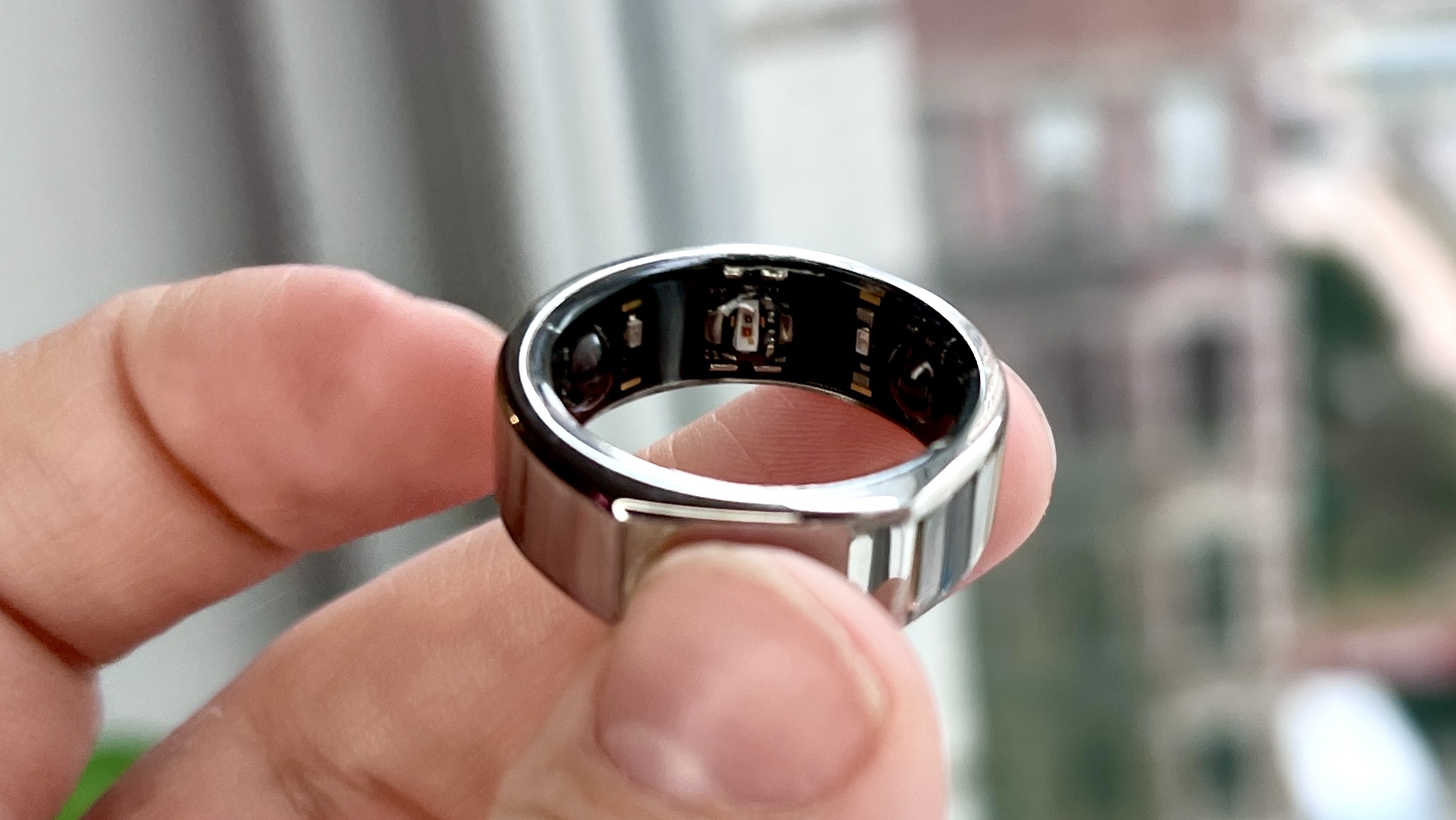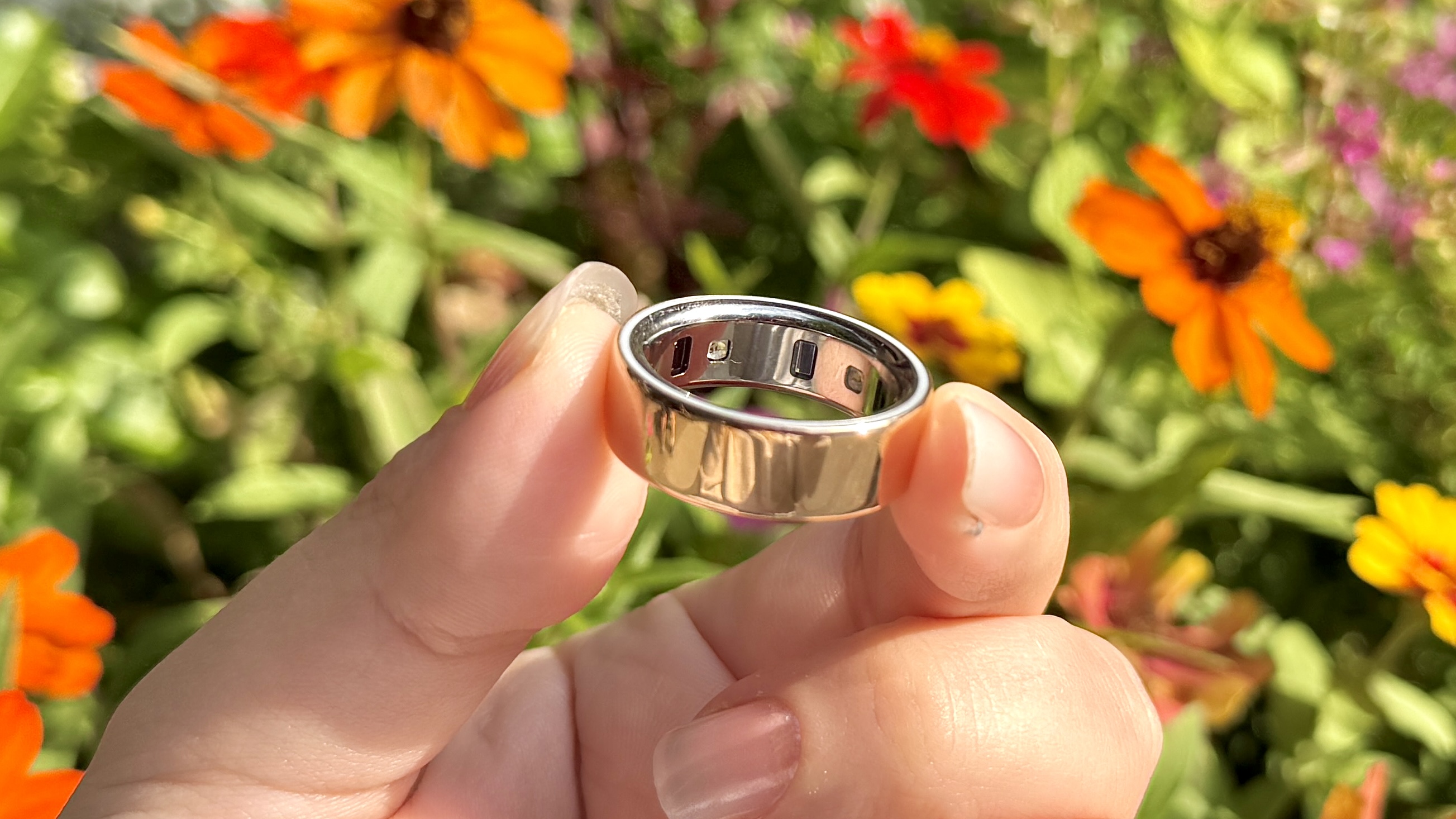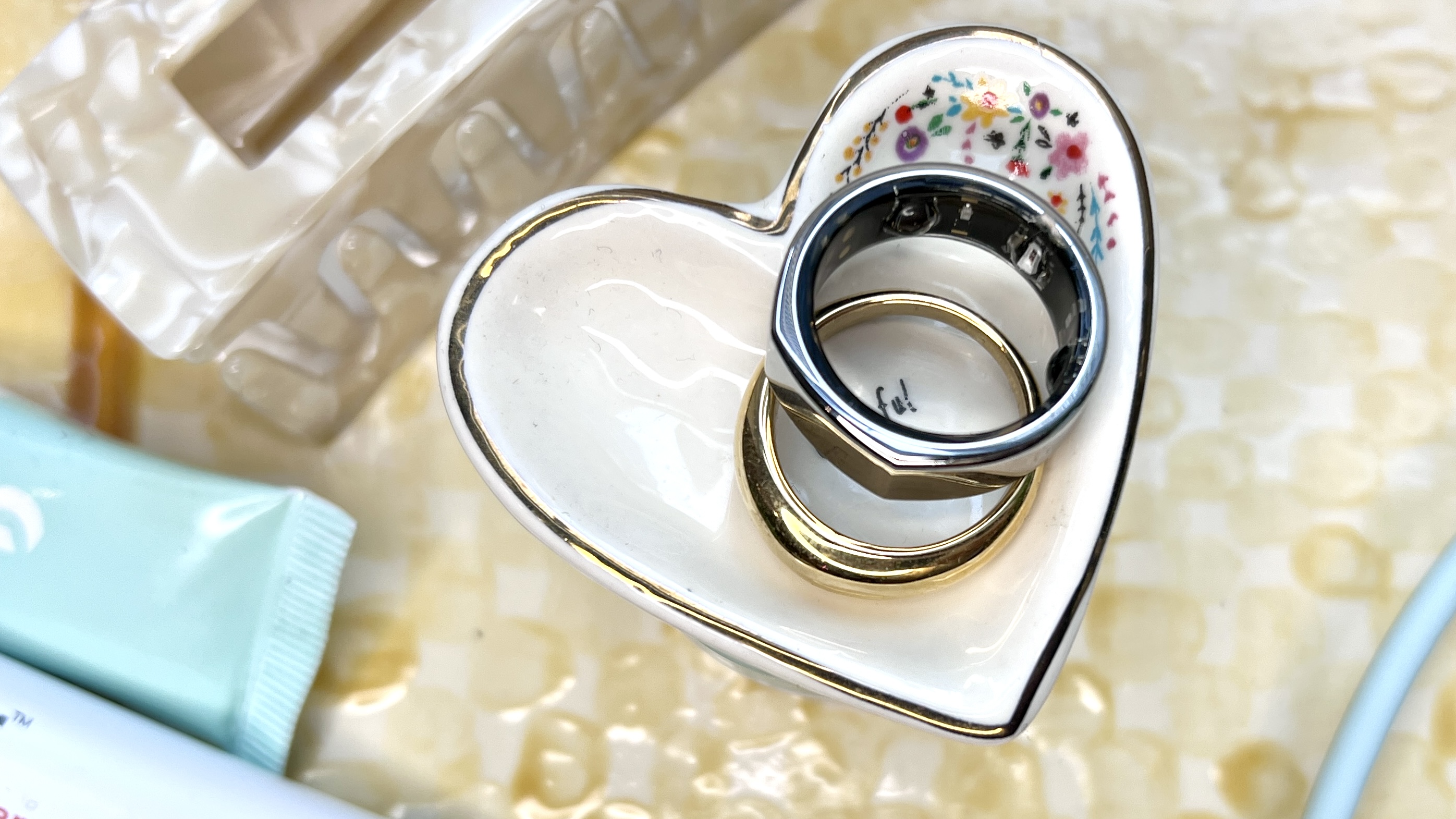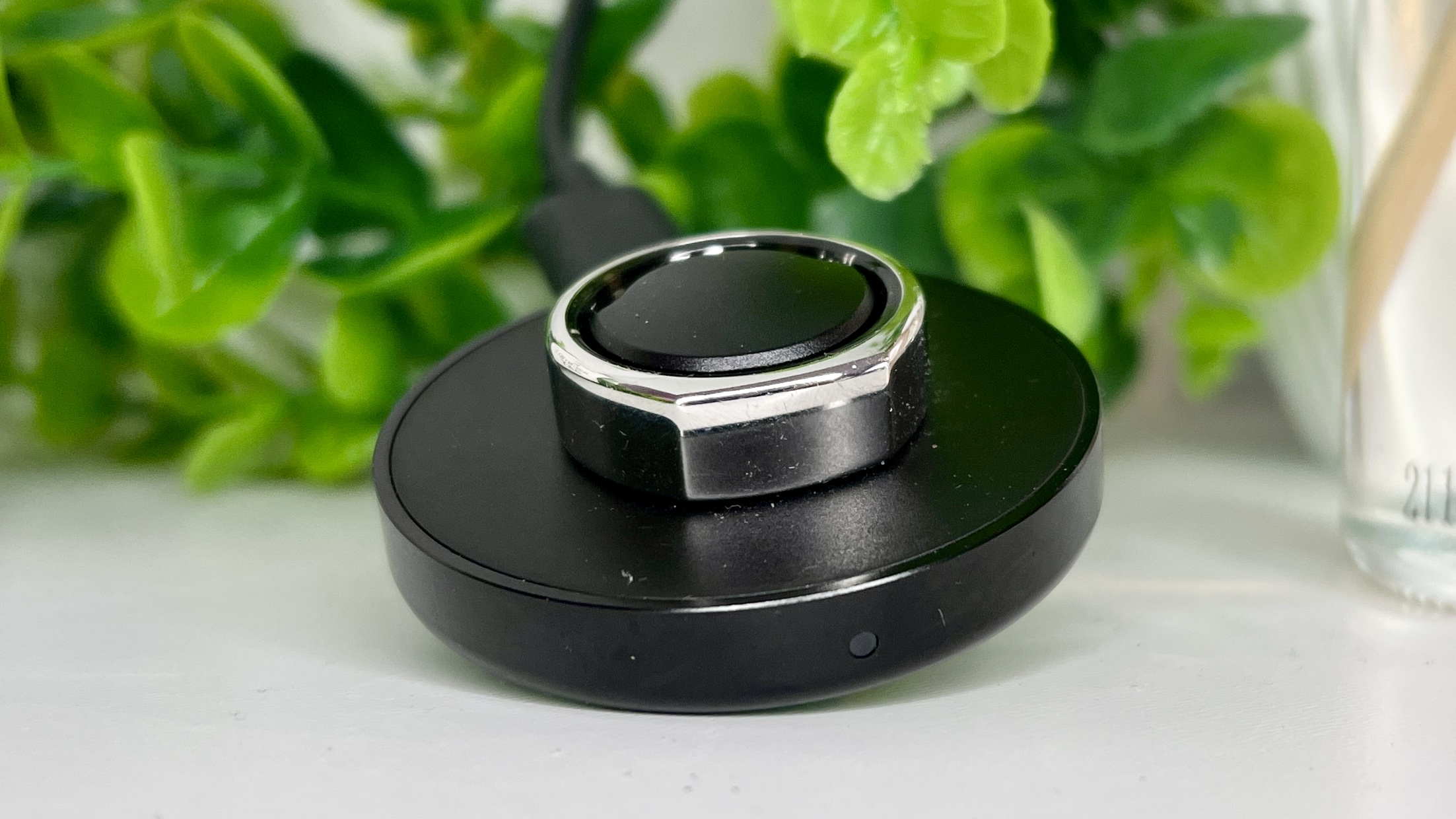

The Oura Ring Gen 3 discussed in this article has been replaced by the newer Oura Ring 4. Check out my full Oura Ring 4 review to see why I think it's the best smart ring money can buy.
In the year since I started using the Oura Ring, the fitness-tracking wearable has served me several ways in my day-to-day life — but more than anything else, it’s a conversation starter.
When others see it on my index finger, they ask whether the Oura Ring is worth it, whether its the best smart ring available right now, and what it can do for me that my Apple Watch or activity band can’t.
The Oura Ring Gen 3 (slash the newer Oura Ring 4) is probably the most mainstream smart ring, packing an array of health sensors into a discreet design. While it can track movement and exercise, sleep tracking is the Oura Ring’s claim to fame.
What’s more, sleep tracking data and other factors are used to inform the user’s readiness, a score that does a better job of encouraging recovery than most other fitness trackers on the market.
Still, it’s not a perfect device, so there are some disclaimers I always give people who are potentially interested in buying one. But I’m also sure to mention the reasons I’ve kept with it for an entire year. Here’s what I like and don’t like about the Oura Ring, based on long-term use.
Oura Ring Black Friday deals
Black Friday is here, and so are all this year's Black Friday smart ring deals, including price drops on the Oura Ring. Primarily, these apply to the older (now discontinued) Gen-3 ring I originally used for this story.
It's functionally very similar to the newer Oura Ring 4, but with slightly shorter battery life and the Ring 4 has a new design, improved accuracy, and the interior sensor bump on the Gen-3 is gone.
Top-notch sleep tracking
The Oura Ring is my favorite sleep-tracking device, hands down. Not only is it comfortable to wear all night (I’m someone who has always slept in my jewelry) — the data it collects is top-notch, too. Monitoring my heart rate, skin temperature and oxygen saturation, the Oura Ring tells me more than I ever thought I wanted to know about my quality of rest. My sleep score functions as a quick summary, though my sleep stages chart and breathing regularity graph give me a closer look at my overnight behaviors.
I’m most interested in my heart rate variability (HRV) data, though. HRV is an indication of sleep “stressors” such as traveling, anxiety and even possible illness. When the Oura Ring picks up on significant changes in HRV, it might suggest a rest day. During a rest day, activity goals are disabled. I’ve been encouraged to take it easy at times when I’ve had particularly busy weeks or are in the middle of a long travel stint. This reminder to rest or not force a workout, has helped me listen to my body’s needs more.
For a long time, I wished the Apple Watch had a way to take a rest day from closing activity rings, and this was a big advantage for the Oura Ring. Now, in watchOS 10, you can pause your activity rings any day you please.
A comfortable, discreet design
I mentioned the Oura Ring is comfortable — it’s actually comfortable to the extent that I often forget that I’m wearing it. Despite its internal sensors, it’s rather lightweight, measuring 0.14 to 0.21 ounces depending on ring size. I believe I have non-smart rings that are bulkier.

Speaking of my other jewelry, I appreciate how the Oura Ring blends in with whatever other accessories I’ve opted to wear. I have a silver Oura Ring, but it also comes in gold, rose gold, black and a matte black called Stealth. While it would be nice to be able to switch colors to match outfits, the same way I can swap out Apple Watch bands, silver is neutral enough for my style.
Growing partnerships in the wellness market
Over the past year, the number of Oura Ring integrations has grown to include partnerships with popular platforms. One of the most exciting new partners is Strava, the running and fitness tracking app with approximately 100 million users. Now, those users with Oura Rings can see their readiness data in their Strava account. But the integration works both ways — Strava activity data gets uploaded to your Oura dashboard, so even if you're not wearing your ring (or tracking Strava through something like the Apple Watch Ultra or a Garmin watch) your progress syncs.
Oura Ring also works with Therabody, the maker of premium massage guns such as the Theragun Pro 5. Users can track Therabody’s therapies in the Oura App so they can monitor the impact of specific recovery tools on their data over time. Natural Cycles, the first FDA-cleared birth control app, is another notable partnership. Users are able to sync temperature trend data straight from the Oura Ring, making it easier to record skin temperature readings. These readings, when paired with other fertility indications, can help with pregnancy planning.
Battery life and charging cause headaches

The biggest challenge I have with my Oura Ring is keeping it charged. With all the features enabled, including continuous SpO2 monitoring, the battery life lasts about three full days. (Before the blood oxygen sensing feature went live, I got at least five days on a full charge.) While the ring does send charging notifications to my iPhone, and I use a battery life complication on my iPhone lock screen, I still end up with a dead Oura Ring more often than I’d like.
That’s usually because I travel often and stay at different places. Since the Oura Ring only charges with a proprietary charging base, I’m screwed if I forget to pack it. A spare charging kit costs $59, which isn’t cheap if I wanted to keep one at the few different locations I bounce between. I wish there was an easier way to charge it in a pinch.
It still can’t replace my Apple Watch
Despite how much I enjoy using the Oura Ring, at no point have I felt like it could replace my Apple Watch. I suppose I understand why some people would prefer an Oura Ring over a smartwatch or activity band, but there are too many things I need from my Apple Watch that Oura Ring doesn’t offer. The most obvious one — the Oura Ring doesn’t have a display, so I can’t follow my activity metrics mid-workout unless I have the Oura app open. As someone who does a lot of heart rate-based training, this is a deal-breaker.
Not to mention, I like getting notifications, controlling music playback and more from my Apple Watch. I also have a list of essential Apple Watch apps that I couldn’t live without. It would be great to see an Oura app for Apple Watch, where I could check my readiness score and sleep data. While my Apple Health profile is synced to my Oura Ring, a smartwatch app would take a key integration that much further.
Will I keep wearing my Oura Ring?
The short answer is yes, I have no plans to stop wearing the Oura Ring. While I've tested other fitness trackers and sleep-tracking devices over the year, the Oura Ring has remained a permanent fixture on my finger.
That said, I'm guessing we'll see some companies try to leverage the Oura Ring's success by making new smart rings, perhaps with competitive features to stand out. If that's the case, I'll definitely want to try them out to see what else the world of smart rings can offer.







